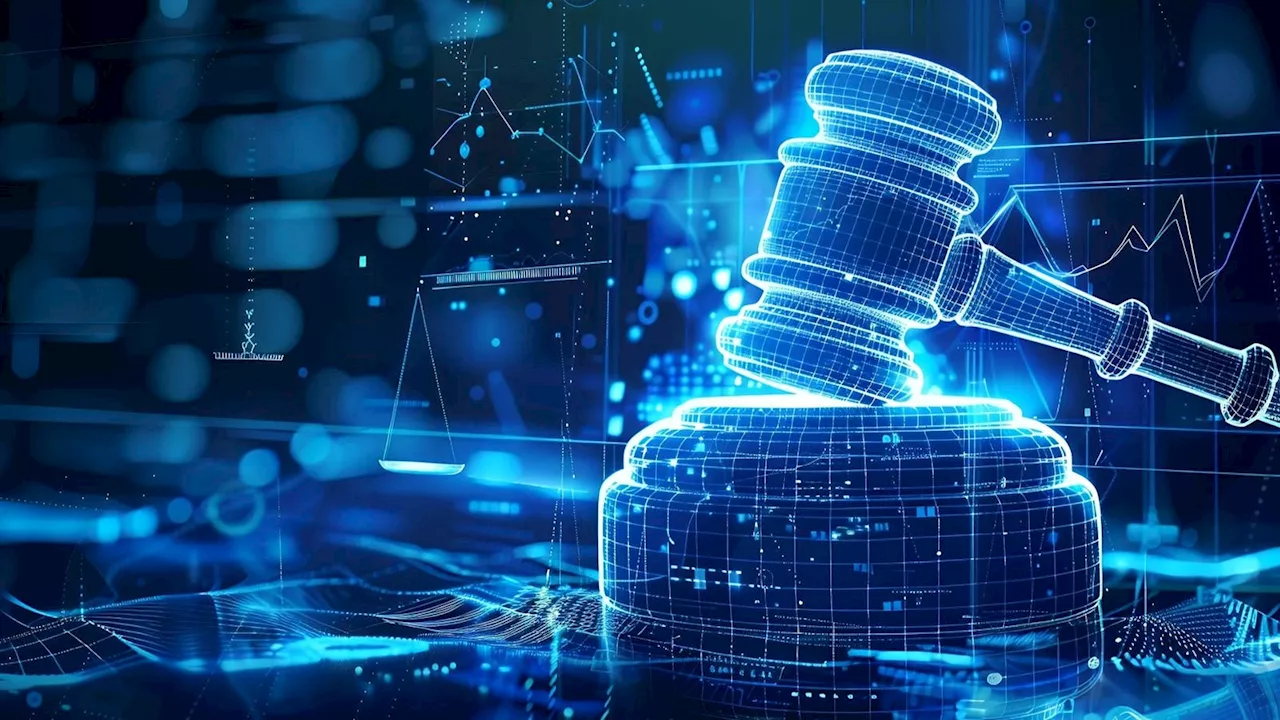This article explores the transformative impact of artificial intelligence on the legal profession, highlighting key trends and their implications for lawyers and clients.
Artificial intelligence is transforming the legal industry just as it is reshaping almost every other sector of industry. This is happening at a critical time. With changing client expectations and increasingly complex regulatory environments, technological innovation is quickly becoming essential for keeping pace with a rapidly evolving legal landscape. Large language models (LLMs) are the AI engines powering chatbots like ChatGPT and Gemini.
Their ability to generate virtually any kind of text – including legal contracts, summaries or answers to legal questions – means they are playing an increasing role in the work of legal professionals. It will also become more and more common to see them in client-facing applications, such as answering frequently asked legal questions. These models will continue to become more powerful and flexible throughout 2025, reshaping the work of legal departments. As AI and digital transformation become increasingly central to the operations of most businesses, legal professionals will play an ever-more critical role in helping companies comply with regulations and guidelines around its use. Mitigating the legal risks of AI applications themselves (such as the potential for IP infringement or breach of equality regulations) will also involve assessing liabilities around data governance and information security. Drafting policies, auditing systems for bias and potential breaches of DEI requirements, and developing specialist knowledge of emerging legal technologies will all be key trends. In 2025, the proliferation of lawtech doesn’t just make lawyers’ lives easier; it improves everyone's access to justice and legal services. Cloud-based self-service portals enable the automated generation of legal documents, chat-powered legal advice and other affordable solutions. Put together, these have the effect of simplifying and lowering the cost to individuals and small businesses of accessing effective legal recourse. The ability of AI to automate repetitive elements of work will transform the day-to-day activities of lawyers and legal professionals in 2025. This includes automating document reviews and discovery, contract management and anything involving processing data. As legal departments learn to become efficient in using this technology to accelerate workloads and reduce costs, professionals will shift their focus to more strategic, high-value tasks involving interpersonal communication, relationship-building and complex problem-solving. Law firms that successfully adapt to this paradigm shift will find they are able to deliver more cost-effective services and hone their competitive advantage. The ability of AI to predict the future – by analyzing vast datasets of prior case law and judicial decisions to forecast the outcome of trials and litigation – will be a valuable tool for legal professionals in 2025. This will help legal representatives provide better services for their clients by enabling them to more accurately predict results and model the likelihood of success of different strategies and resource allocations. This means that legal advice given to clients becomes more data-driven and less reliant on speculation and chance. The need for legal departments, law firms and professionals to audit the use of AI in their operations, to make sure it’s being used in ways that are fair (unbiased), secure, transparent, accountable and ethical will grow in 2025. On top of this, lawyers will find that a growing part of their workload will involve advising clients or colleagues on their own AI operations, to ensure they are responsible. Embracing responsible AI is critical not only to safeguarding an organization's reputation but also to positioning it as a leader in an industry undergoing rapid digital transformation. The rapid evolution of lawtech that will take place in 2025 will reshape the work of legal departments and law firms in many profound ways. We will see processes streamlined, access to justice improved, and the role of the lawyer redefined. However, care must undoubtedly be taken to approach this transformation in an ethical and responsible way if we want to make sure that the convergence of law and technology results in a fairer and more just future for everyone
Artificial Intelligence Lawtech Legal Profession Ethics Automation Access To Justice
United States Latest News, United States Headlines
Similar News:You can also read news stories similar to this one that we have collected from other news sources.
 14 lessons from 2025 to remember in 2025: BofA14 lessons from 2025 to remember in 2025: BofA
14 lessons from 2025 to remember in 2025: BofA14 lessons from 2025 to remember in 2025: BofA
Read more »
 My Hero Academia: Vigilantes Anime Gets April 2025 Premiere & Final Season Set for Fall 2025My Hero Academia, one of the most popular anime franchises in recent years, is getting both a spin-off anime and its final season. The spin-off, My Hero Academia: Vigilantes, will premiere in April 2025. The final season of the main series is set to air in autumn 2025
My Hero Academia: Vigilantes Anime Gets April 2025 Premiere & Final Season Set for Fall 2025My Hero Academia, one of the most popular anime franchises in recent years, is getting both a spin-off anime and its final season. The spin-off, My Hero Academia: Vigilantes, will premiere in April 2025. The final season of the main series is set to air in autumn 2025
Read more »
 BREAKING: Bruins' 2025 2025 Football Schedule RevealedThe Big Ten announced its football schedule for the 2025 season, and UCLA's schedule will feature a few familiar faces and multiple teams it did not play this past season in its first year in the Big Ten.
BREAKING: Bruins' 2025 2025 Football Schedule RevealedThe Big Ten announced its football schedule for the 2025 season, and UCLA's schedule will feature a few familiar faces and multiple teams it did not play this past season in its first year in the Big Ten.
Read more »
 Auburn football 2025 schedule reveal: Who do the Tigers play in 2025 and when?How Auburn football's schedule will look in 2025 following Wednesday's official reveal
Auburn football 2025 schedule reveal: Who do the Tigers play in 2025 and when?How Auburn football's schedule will look in 2025 following Wednesday's official reveal
Read more »
 Frankencar 2025: The best of the Motor Authority Best Car To Buy 2025 finalistsTaking the best bits from our award finalists this year, this latest creation is electric with power, style, and three rows of seats.
Frankencar 2025: The best of the Motor Authority Best Car To Buy 2025 finalistsTaking the best bits from our award finalists this year, this latest creation is electric with power, style, and three rows of seats.
Read more »
 Tesla is recalling almost 700,000 vehicles due to a tire pressure monitoring system issueThe recall includes certain 2024 Cybertruck, 2017-2025 Model 3, and 2020-2025 Model Y vehicles.
Tesla is recalling almost 700,000 vehicles due to a tire pressure monitoring system issueThe recall includes certain 2024 Cybertruck, 2017-2025 Model 3, and 2020-2025 Model Y vehicles.
Read more »
